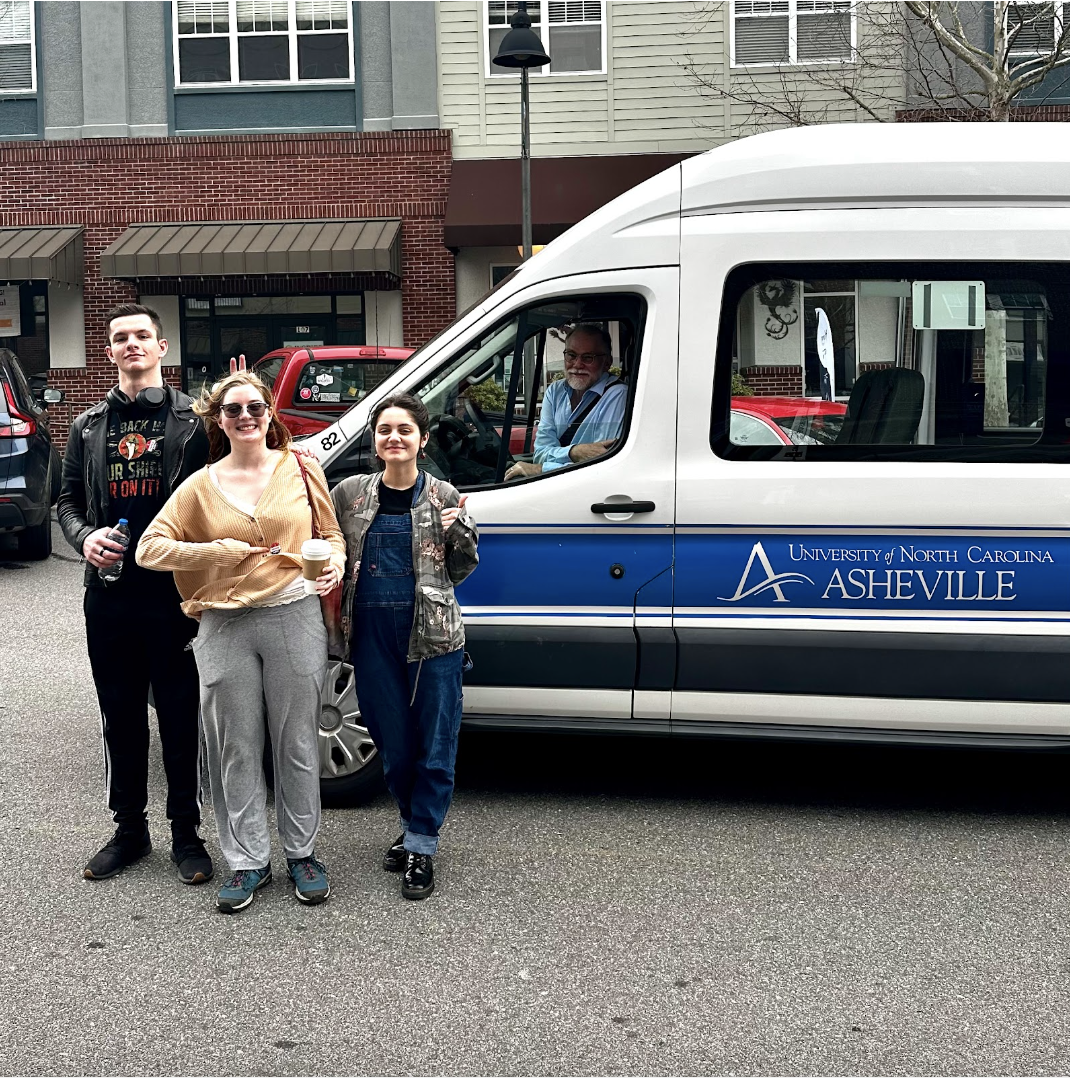As the North Carolina primary election prevails UNCA faculty and alumni reflect on the current state of democracy.
“I understand sometimes voters might feel like they don’t like the options they are given, because we do have an entrenched two-party system, but I still think it’s important to show up,” said Ashley Moraguez, 37, co-chair and associate professor of political science at UNCA. “I want to emphasize it’s one step in a wider political strategy I hope people engage in. I hope people see it as the first step and not the only step.”
According to Moraguez, who has a doctorate in political science, it is integral to work within the political system and compromise, but mobilizing outside of the system is equally as important.
“I encourage people to turn out to vote, to call their politicians, but I also think it’s important to work outside of the system. I think protest has a really important role in the political process. I don’t see this as you choosing one path or the other, but I hope people will engage more generally,” Moraguez said.
Identification cards, which include student ID cards, are required to vote in North Carolina. Moraguez said she remains deeply hopeful about the future of democracy, yet is simultaneously concerned with some of the restrictions it imposes.
“I am concerned about the actions of politicians that make it harder for people to engage in democracy. Restrictions on voting have me deeply concerned, and how they affect some people more than others, such as communities of color and young voters. I am deeply concerned about the democratic implications of those kinds of restrictions on voting or other democratic practices,” Moraguez said.
According to Giovanny Pleites-Hernandez, 34, assistant professor of political science at UNCA, voting is important as it not only allows him to be a part of a historically generalized community, but because on a personal level he desires to help represent those individuals who are otherwise ineligible.
“I have a lot of access many people don’t have. But I think more fundamentally voting is one of the many ways that people can get involved in politics. It gets the most attention, but it is one way that we can try to let the government know what we want from it,” said Pleites-Hernandez, who has a doctorate in political science.
Change was never meant to be fast or easy, and some of the gridlock in American politics is by design, according to Pleites-Hernandez.
“The two-party system has its noted deficiencies, but my attitude is it shouldn’t stop individuals from voting. Even with a two-party system, even with a limited choice, other candidates can influence individuals who do make it to the ballot,” Pleites-Hernandez said.
During the 2016 and 2020 general elections, Sens. Elizabeth Warren and Bernie Sanders may not have been successful in getting their names on the ballot, but each of those candidates brought up issues that later impacted patterns of political influence, Pleites-Hernandez said.
“A lot of individuals talk about how the Sanders campaign moved Hillary Clinton and Joe Biden more to the left, so whenever you think of it from that perspective, yes, choice is limited, but there are ways to bring about change,” Pleites-Hernandez said.
Emily Hall, 23, a recent UNCA graduate, said the relationship between media and politics is responsible for the climate of mistrust.
“We get one type of media presented to us through our phones, because it will track what you’re looking at the most. I think people are getting shown either stuff they’re going to really strongly agree with or that’s going to upset them,” Hall said. “I don’t think it’s always accurate and I think it can influence what people believe to be the truth.”
Polarization is affecting the political parties, the people in power, our media landscape, as well as the individual, according to Moraguez.
“If you look at public opinion polling, there’s so much distrust in the media that it’s almost as bad as the three branches of government, and that has me deeply concerned,” Moraguez said. “The main way we as members of the political community engage with politics, learn about politics, is through the media, and we now have this segmented media landscape where there’s kind of an explicit bias to a lot of the political news we receive.”
In-person early voting continues until March 2, and the primary election will take place on March 5.


![Brooke Pedersen [second from the right] and Luis Reyes [right] hold banners during the Wrap The Woods event.](https://thebluebanner.net/wp-content/uploads/2025/09/ELIZABETH_PRITCHITT_IMG_3470-1200x804.jpg)
















